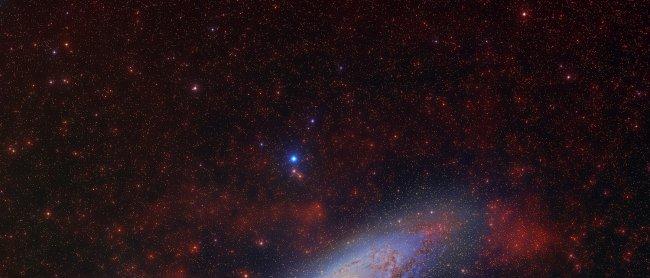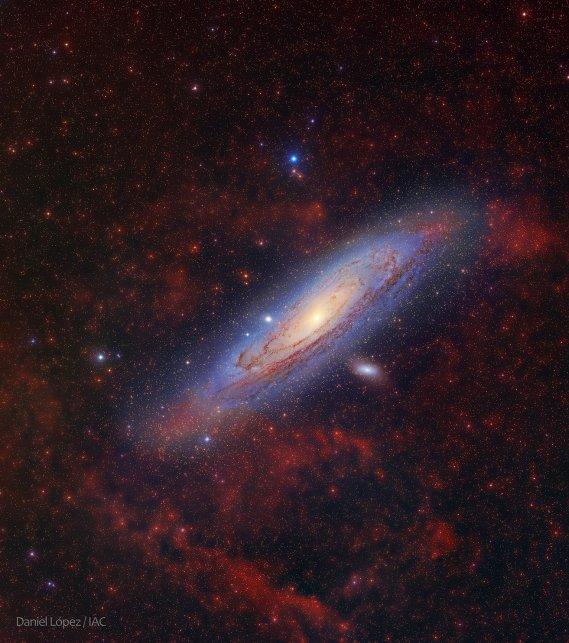It may interest you
-
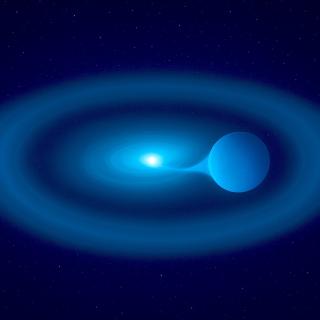 A greedy white dwarf star in our own Milky Way galaxy is devouring its closest celestial companion at a rate never seen before, according to an international study involving the Instituto de Astrofisica de Canarias (IAC) and the University of La Laguna (ULL). The research, published in the journal Monthly Notices of the Royal Astronomical Society , found the double star, named V Sagittae, is burning unusually bright as the super-dense white dwarf is gorging on its larger twin in a feeding frenzy. Experts think the stars are locked in an "extraterrestrial tango" as they orbit each other everyAdvertised on
A greedy white dwarf star in our own Milky Way galaxy is devouring its closest celestial companion at a rate never seen before, according to an international study involving the Instituto de Astrofisica de Canarias (IAC) and the University of La Laguna (ULL). The research, published in the journal Monthly Notices of the Royal Astronomical Society , found the double star, named V Sagittae, is burning unusually bright as the super-dense white dwarf is gorging on its larger twin in a feeding frenzy. Experts think the stars are locked in an "extraterrestrial tango" as they orbit each other everyAdvertised on -
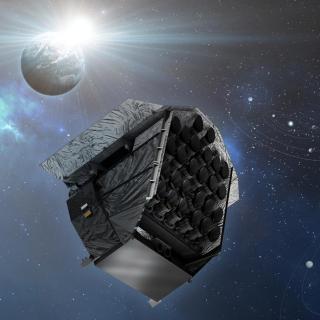 The PLATO (PLAnetary Transits and Oscillations of Stars) space mission, led by the European Space Agency (ESA), has recently completed one of the most delicate phases of its development: the integration of its main components, the 26 scientific cameras and the service module that houses all the instrument's acquisition, processing, and control electronics. This stage, carried out at the facilities of the aerospace company OHB in Germany, marks a fundamental step toward the launch scheduled for December 2026 from French Guiana aboard an Ariane 6 rocket. “Almost eight years after ESA gave theAdvertised on
The PLATO (PLAnetary Transits and Oscillations of Stars) space mission, led by the European Space Agency (ESA), has recently completed one of the most delicate phases of its development: the integration of its main components, the 26 scientific cameras and the service module that houses all the instrument's acquisition, processing, and control electronics. This stage, carried out at the facilities of the aerospace company OHB in Germany, marks a fundamental step toward the launch scheduled for December 2026 from French Guiana aboard an Ariane 6 rocket. “Almost eight years after ESA gave theAdvertised on -
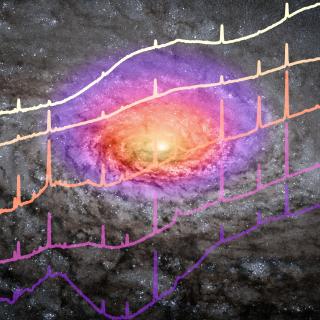 An international team led by Cristina Ramos Almeida, a researcher at the Instituto de Astrofísica de Canarias (IAC), has used the James Webb Space Telescope (JWST) to observe five dust-obscured quasars — and the results offer new insights into how galaxies and their central supermassive black holes may evolve. The study is published today in the journal Astronomy & Astrophysics . The energy released by supermassive black holes at the centres of galaxies is a fundamental ingredient in regulating the formation of new stars, and thus galaxy growth. This occurs during an active phase, usuallyAdvertised on
An international team led by Cristina Ramos Almeida, a researcher at the Instituto de Astrofísica de Canarias (IAC), has used the James Webb Space Telescope (JWST) to observe five dust-obscured quasars — and the results offer new insights into how galaxies and their central supermassive black holes may evolve. The study is published today in the journal Astronomy & Astrophysics . The energy released by supermassive black holes at the centres of galaxies is a fundamental ingredient in regulating the formation of new stars, and thus galaxy growth. This occurs during an active phase, usuallyAdvertised on
